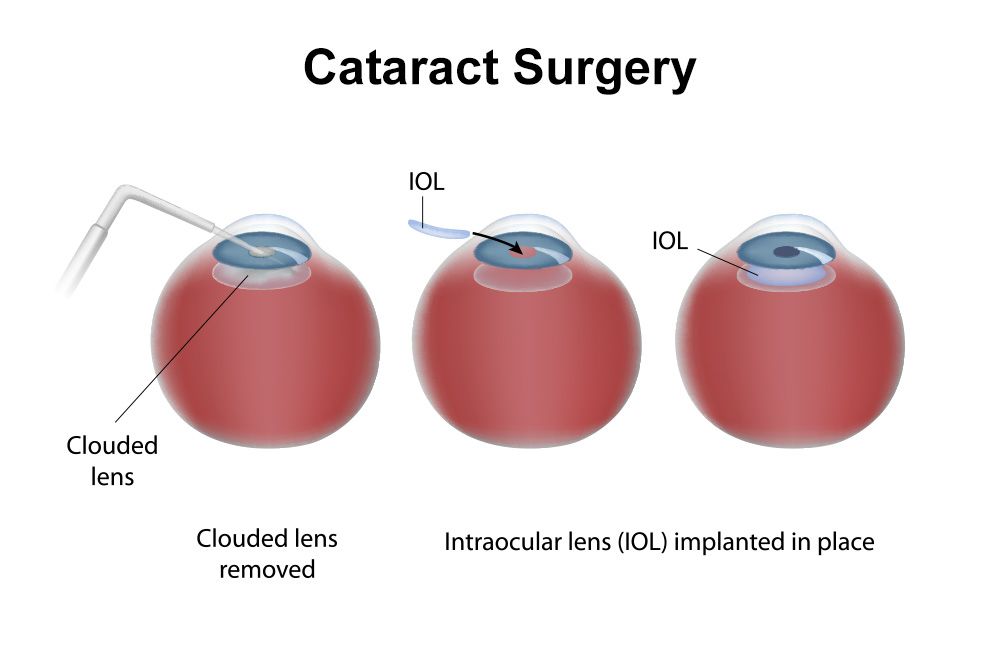Cataract Surgery: Understanding the Basics
 Dr. David Parks is proud to provide state-of-the-art eye care services to patients in the greater Beverly Hills area. The team at his advanced ophthalmology and eye care practice can address a whole host of issues, including serious retinal conditions and more routine eye health matters.
Dr. David Parks is proud to provide state-of-the-art eye care services to patients in the greater Beverly Hills area. The team at his advanced ophthalmology and eye care practice can address a whole host of issues, including serious retinal conditions and more routine eye health matters.
Cataracts are one of the most common causes of vision loss. Let's take a moment to go over the basics of cataracts and cataract surgery.
What Are Cataracts?
A cataract refers to the clouding of the naturally clear lens of the eye. The clouding can lead to decreased vision and poor vision quality overall. Thankfully there are many treatments available to address the cataracts themselves or the vision loss associated with cataracts.
Causes of Cataracts
There are numerous causes of cataracts to consider. The most common cause of cataracts is the natural aging process, which accounts for the gradual wear on the eyes over time. In addition to age, however, the following also contributes to the formation of cataracts:
- Injury to the eye
- Ultraviolet radiation (UV rays)
- Radiation exposure
- Certain skin conditions
- Family history of cataracts
- Smoking
- Steroid use
In rare instances, a child may be born with cataracts as a result of a congenital condition.
Signs and Symptoms of Cataracts
The most telling sign of a cataract is the iris of the eye appearing pale or milky in color. In addition, patients may notice a dip in their vision quality, including issues with blurriness or haziness and increased instances of glare.
When Is Cataract Surgery Necessary?
Cataract surgery is typically necessary when a patient has experienced a significant change in his or her vision and the clouding of the lens is especially pronounced. For some patients who have cataracts in early stages, the use of prescription lenses will be sufficient for addressing their diminished vision quality.
Is Cataract Surgery Safe?
Yes.
Cataract surgery is a safe and routine surgery. Many people develop cataracts each year, and eye surgeons are well equipped to address these matters.
What to Expect During Cataract Surgery
Patients will typically be sedated during cataract surgery, with local anesthesia used to prevent pain and discomfort. An eye surgeon will carefully make an incision in the lens capsule, allowing for the removal of the clouded lens of the eye. An intraocular lens (IOL) is typically placed at this time to replace the clouded natural lens and restore vision.
Cataract Surgery Recovery
Recovery from cataract surgery is relatively simple and free from complications. Patients may notice issues with soreness, discomfort, dry eye, and light sensitivity in the early days of healing. It's important to wear sunglasses when outdoors and to follow all post-op instructions to the letter to ensure prompt recovery.
The Results of Cataract Surgery
After undergoing cataract surgery, patients report being able to see clearly again and are free from clouded lenses affecting their appearance. Overall vision quality is typically good, though patients may need to wear glasses depending on what kind of IOL has been placed. This can be discussed in greater detail during the consultation process.
Speak with Dr. David Parks About Cataract Surgery
For more information about cataract removal and whether or not you are an ideal candidate for surgery, be sure to contact our advanced eye care and retinal health center today. Dr. David Parks and the entire team look forward to your visit and helping you have healthy eyes and excellent vision.


